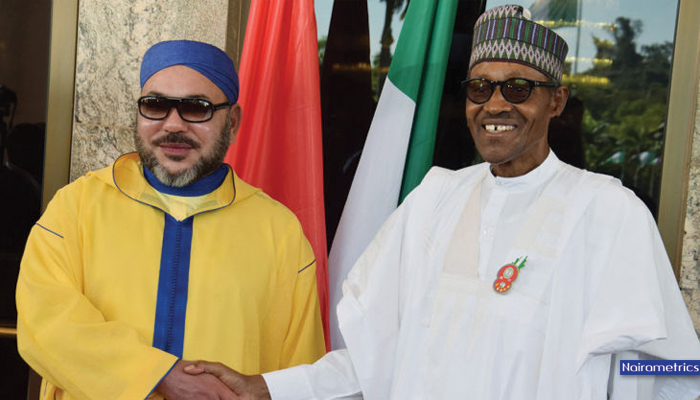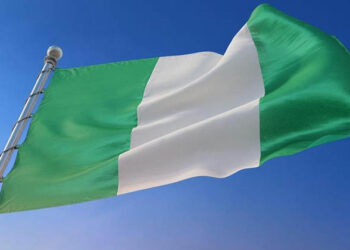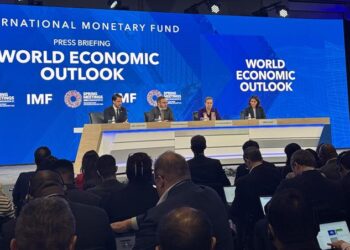The African Union’s re-admittance of Morocco brings to an end a 33 year old dispute that began in 1984 when members of the then Organisation of African Unity—including Nigeria—voted to admit the Sahrawi Arab Democratic Republic (a partially recognized state that controls a thin strip of area in the Western Sahara) into its fold, despite protests from Morocco which has laid claim to the territory.
Western Sahara, a sparsely populated region in the Sahara Desert, has had a long struggle for self-governance. Following an agreement on the division of spheres of influence in Africa during the Berlin Conference in 1884, Spain seized control of Western Sahara, and administered it as a colony. After the Spanish Civil War (1936-1939), administration of the colony was transferred to Spanish Morocco, a small part of Morocco, which at the time was under French rule. France and Spain had signed a treaty in 1912 which ceded parts of Morocco to Spain.
Following World War II, colonial rule in Africa began to unravel, and after Morocco itself gained independence in 1956, pressure began to mount on Spain to cede Western Sahara. However, Spain’s dictator, Francisco Franco held on, though Spain slowly dismantled its colonial empire on the continent. Spain, rather than provide a clear path to independence for Western Sahara shied away from conducting a referendum while it administered the territory and signed it over to Morocco and Mauritania jointly in the Madrid Accords of November 14, 1975.
In 1975, the UN determined that while both Morocco and Mauritania had historical links with the area, the population had a right to self-determination. Morocco invaded in response, and the Polisario Front, started a guerrilla campaign with backing from Algeria. The Polisario Front forced Mauritania, which had also seized some of the territory of Western Sahara, to withdraw in 1979 and eventually relinquish its claims to the territory. However, Morocco held firm until a UN-brokered ceasefire was agreed in 1991. This was to be followed by a referendum in 1992, but it has not happened due to of a dispute over who is eligible to vote.
Nigeria has generally supported Western Sahara’s self-determination and this had sometimes led to frosty relationship with Morocco. Nigeria’s most recent altercation between Morocco happened in March of 2015, when the Nigerian Foreign Ministry released a statement claiming President Goodluck Jonathan had a phone conversation with Mohammed IV of Morocco, while the Moroccan government released a counter statement insisting that no such phone conversation took place. The spat eventually led to the Moroccan government recalling its ambassador to Nigeria.
In his address at the UN General Assembly of September 2015 President Buhari made a point of emphasising his support for the independence of Western Sahara and to further to show his commitment, he received the Foreign Affairs Minister of Western Sahara in March 2016. Nigeria’s support for the Western Sahara has far greater ripple effect in Nigeria than it has on most African countries. Separatist movements in Nigeria, most notably the Indigenous People of Biafra had constantly referred to Nigeria’s position on Western Sahara in their aim to become an independent state. The Nigerian government’s change in stance renders this argument less meaningful.
Foreign relations watchers were surprised when President Buhari signalled a strengthening of the Nigeria-Morocco relationship with the signing of 15 bilateral agreements (including the West African gas pipeline project that will take Nigerian crude via Morocco into Europe), during the visit of King Mohammed IV of Morocco to Abuja in December 2016. A shift in the stance on Western Sahara has been perceived with a statement from the President’s media aide, Garba Shehu.
"For anybody to make a comparison between Western Sahara and Biafra, that is a display of knowledge deficit in international politics. One, Western Sahara is a classic case of decolonisation. It is the last remaining colony on the African continent and we all owe it a duty to ourselves to liberate Western Sahara. In fact, as the military head of state, President Buhari was the first to recognise Western Sahara and then the rest of Africa followed. So, he is being consistent. But Biafra is for the dismemberment of the Federal Republic of Nigeria, which is already a settled entity. These two scenarios are clearly different."
On another hand, some watchers sense that Morocco’s reentry into the AU may see the deals signed by Morocco and Nigeria jettisoned since Morocco can now pursue deals with other African Countries. This may be unfounded however since Morocco’s moves to join the AU began long before the bilateral deals signed with Nigeria and is probably driven by three factors – Political, Economic and Security. Politically, it appears it has taken a position to take the fight away from non-African players such as the EU and the UN to the AU, taking advantage of the fluidity that comes with ongoing leadership changes in the AU to strengthen its position. In this area, it has not had success with Nigeria, as Nigeria did not sign the 2016 letter to the AU Chairperson, Idris Deby of Chad, to suspend Western Sahara from the AU.
On the economic front, Morocco’s strategy seems to be working with Nigeria. After foreign fertiliser companies such as Yara of Norway and Mosaic of the United States were forced to stop the extraction of phosphates from Western Sahara due to domestic pressure in their home countries over Morocco’s stance on Western Sahara, one of the agreements signed with Nigeria has been one in the area of fertiliser. Nigeria has prioritised its economic interests in obtaining cheap fertiliser for its farmers over the political situation around Western Sahara. This is a new phase of nuance in Nigeria’s foreign policy.
Olugbenga Ashiru, Foreign Affairs Minister during the Goodluck Jonathan Administration in Nigeria described the government’s foreign policy as such:
“...the maintenance of unity... and security of Nigeria, particularly in the wake of current security challenges; job and wealth creation for Nigerians; the promotion of trade and investments; promoting the welfare of Nigerians both at home and abroad... improving the image of Nigeria abroad; enhancing Nigeria’s representation and enhancing Nigeria’s leadership role in West Africa in particular and Africa in general; among others.”
Nigeria as a country has its foreign policy built largely around Pan-Africanism. Her interventions in Sierra Leone, South Africa, Liberia, and most recently the Gambia have more often than not, toed this path. As the events have shown, Nigeria is increasingly able to find ways to maintain its political positions on foreign policy while exploring other possibilities in the economic space.
Morocco is a prosperous country and its re-entry into the thick of African diplomacy may resulting in the waning of influence of other African heavy weights like Egypt, South Africa and Nigeria. Currently enjoying GDP growth rates in excess of 5%, Morocco has a lot of cash to spend unlike currently cash strapped Nigeria. In Africa, influence is determined to a large extent by the amount of money you have to spend, for example China’s increasing influence in Africa versus that of the United States. An example of Nigeria’s waning influence was its failure to secure the position of AU Commissioner for Peace and Security for its candidate Fatimah Mohammed in the recently concluded AU elections. She lost to Algeria’s Smail Chergui whereas current AU Chairperson Idriss Deby of Chad secured enough support for his country’s candidate for AU Commission Chair, Moussa Faki Mahamat.
Regardless of what happens at the continent level, Nigeria can be assured that within West Africa its economic, demographic and military strength does guarantee it significant influence.



















